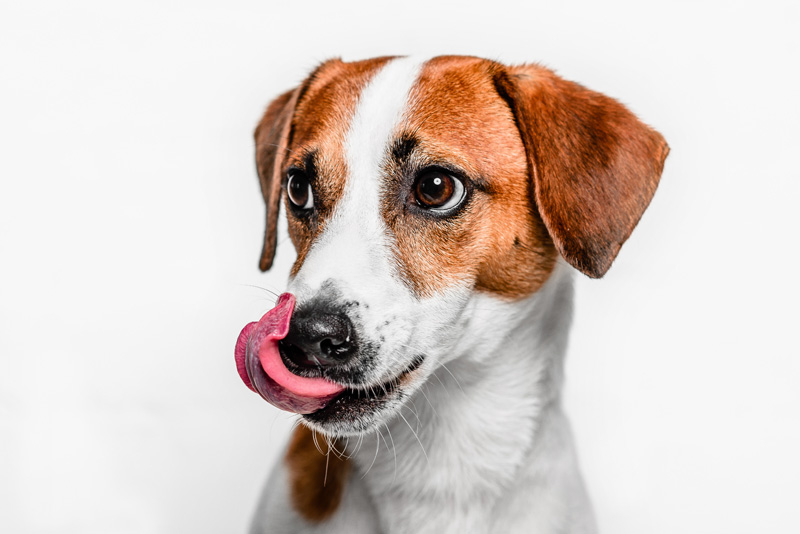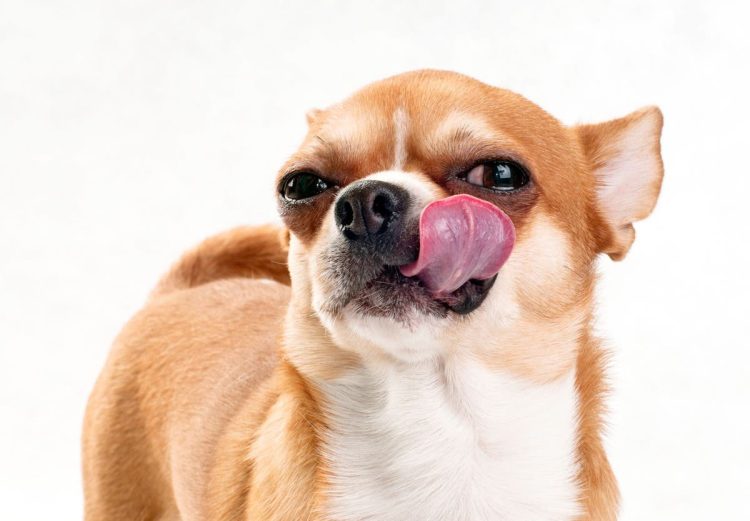What does it mean when a dog licks its lips? If you see a dog licking its lips, you might think it’s just eating or drooling. But if there is no food around, dogs may lick their lips because something they perceive as threatening is happening around them. Lip licking is a form of communication for dogs, and dogs who lick their lips are using body language to let you know how they feel. We break down what it means when a dog licks lips is not associated with eating and how to address the behavior. What is dog licking lips? Lip licking is exactly what it sounds like: a dog licks his lips. If you notice a dog licking its lips without food, it may be trying to send a message.
What does it mean when a dog licks its lips? American dog trainer and behaviorist Turid Rugaas coined the term “calming signal” to refer to lip licking and similar dog behaviors. Lip licking is also often referred to as a soothing gesture. Dogs display certain behaviors and behaviors when they are stressed or uncomfortable. Usually because there is something going on around them that they see as a threat. Dogs who lick their lips often communicate their concern. Dogs lick their lips to reassure and reassure people or animals they perceive as a threat, in order to ward off an attack. An example of this can be seen in dogs, who are scolded when their owners come home to find that the dog has had an accident in the house. Dogs may not associate scolding with relaxing themselves indoors. Instead, he sees his master as a threat. The owner may be yelling and approaching him. Dogs may make appeasement gestures by licking their lips and looking away. This is the dog’s way of saying that it does not pose a threat to someone who is behaving aggressively. Sometimes dogs show frustration when they are upset or confused, such as licking their lips and yawning. Many owners notice this during training when their dogs cannot understand what is being taught. If you notice licking, yawning, scratching, or sniffing while training your dog, it may be time to stop training.
Dogs cannot learn new things under pressure. To end on a positive note, ask your dog to do simple things he already knows, such as sitting down. Give rewards and praise, and end the meeting. Try playing with your dog for a while to bond and help your dog relax.

Another important possible cause of excessive lip licking in dogs is health-related issues. Dogs may lick their lips due to nausea, dental disease, or mouth pain. Look for other signs of illness and keep an eye on your dog. If in doubt, contact your veterinarian. What to do if your dog licks lips While lip licking is generally considered a submissive gesture designed to prevent aggression from escalating, it still shows that the dog is stressed and uncomfortable with a situation. This reassuring position may be the dog’s first attempt to remove a threat, such as stopping his owner from yelling at him or asking another dog to stop barking at him. However, this does not mean that the dog will not become defensive if the perceived threatening situation persists. If the appeasement gesture is unsuccessful, the defensive dog may act aggressively. If you see a dog licking his lips, step back a little and give him some space to be more comfortable. If possible, try to identify the dog’s concern and eliminate it. This can save you from being bitten by a dog who feels the need to protect yourself. If your dog licks his lips at the veterinarian or somewhere else that makes him nervous, try to redirect him in a positive way. You can make him do a trick and then reward him for obeying. Avoid comforting your dog when he is upset, as this will only exacerbate his fear or anxiety. If your dog licks his lips during training, it’s best to find a quick way to end on a positive note (let your dog do something he knows and end the training). Next time, break down the action or behavior into smaller pieces so your dog can learn more easily. This is sometimes called shaping behavior. If you regularly notice that your dog exhibits lip licking behavior when there is no apparent threat and no food around, you may want to investigate further. Maybe there is something in your dog’s environment that is disturbing him. Keep in mind that there may even be health issues, such as nausea or oral discomfort. When in doubt, take your dog to the veterinarian for an examination.























































